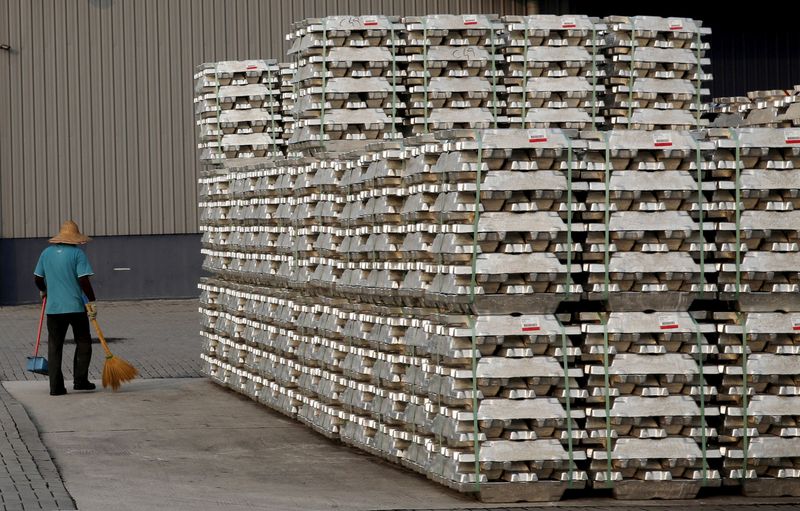By Peter Hobson
LONDON (Reuters) -United States-based aluminium producer Alcoa (NYSE:AA) wrote to the London Metal Exchange (LME) three times in September and October, asking for a boycott of Russian metal and greater disclosure on how much was in the LME system, the company said.
In the letters, seen by Reuters, Alcoa expressed concerns that large amounts of Russian aluminium flowing into LME-registered warehouses could distort the exchange's aluminium contract by making it reflect the price of unwanted material.
While Russia has escaped official sanctions on its aluminium, copper, and nickel of the kind imposed on other sectors following its invasion of Ukraine, some Western companies have stopped accepting Russian metal.
These include Alcoa and most of its customers, according to a letter the company sent to the LME dated Sept. 29 and signed by chief commercial officer Kelly Thomas.
The letter said that without buyers, more metal made by Russian aluminium producer Rusal could be deposited on the exchange, which functions as a market of last resort, leaving the LME with stocks that Alcoa said many companies and banks may not want to deal with.
"As we move into 2023 ... it is easy to see a scenario where well over one million metric tons per year of Rusal metal could be put on warrant," it said. "The LME aluminium contract will be distorted because it will disproportionately reflect the discounted value of the Rusal brand."
Rusal said efforts by its competitor to ban it from the exchange were "clearly for their own benefit".
"There are no plans to deliver aluminium to the exchange, by virtue of a strong sales and order book moving in to 2023," it said in an emailed statement. "The data and evidence to support this has been provided directly to the LME."
The exchange declined to comment on the letters.
The LME, the world's biggest metals trade venue, asked its users on Oct. 6 if they thought the exchange should ban Russian metal, setting an Oct. 28 deadline for responses. It said last week it could take action on Russian metal if it became a problem, without saying what it would do.
Alcoa is one of several U.S. and European metals producers that have lobbied for the LME and Western governments to restrict trade in Russian metal. Some metals consumers have argued against this, saying restrictions would harm them while benefiting non-Russian producers.
Letters sent by Alcoa to the LME dated Oct. 18 and Oct. 27 said around 250,000 tonnes of aluminium that entered LME-registered warehouses in October could be Russian, and asked the LME to publish daily disclosures showing how much Russian metal was in its system.
Rusal said it was confident that most of the metal delivered to the exchange in October was not Russian. "Suggestions by competitors to the contrary are quite simply false, and damaging to market order," it said.

Alcoa said in its Oct. 27 letter, which was a response to the LME's request for opinions from the market, that it urged the exchange "to immediately delist all Russian brands, regardless of the production date".
The company has also lobbied the U.S. government to impose restrictions on Russian aluminium, something sources have said the government is considering.